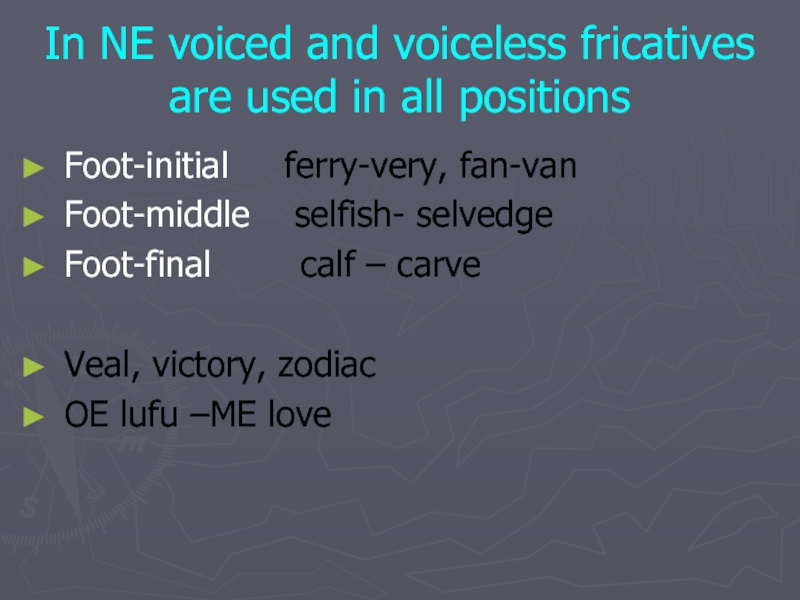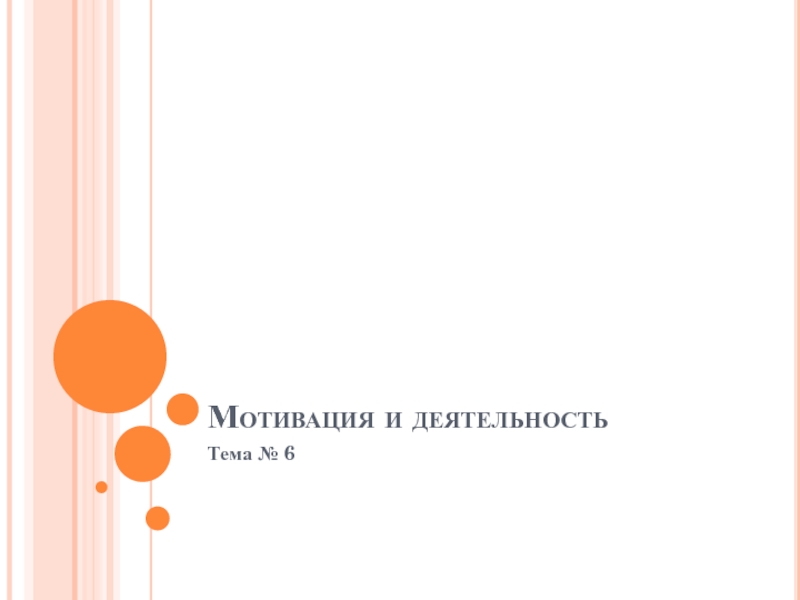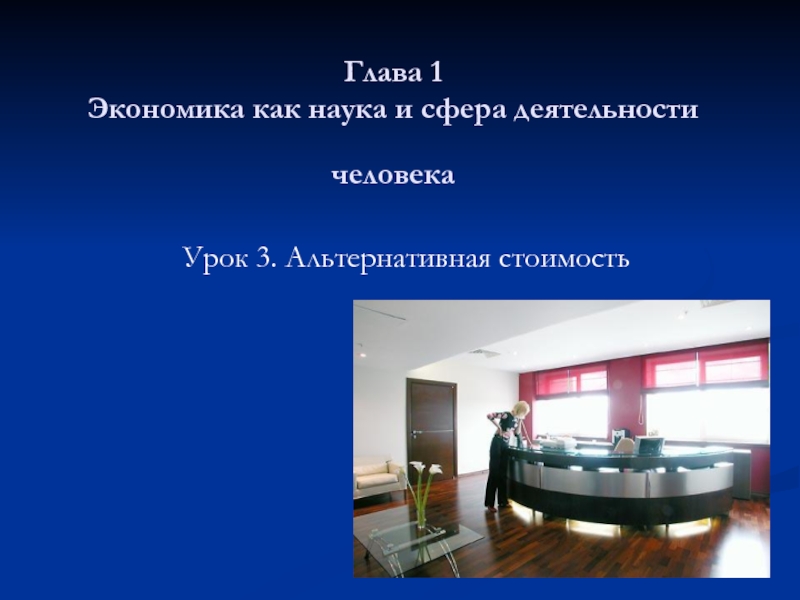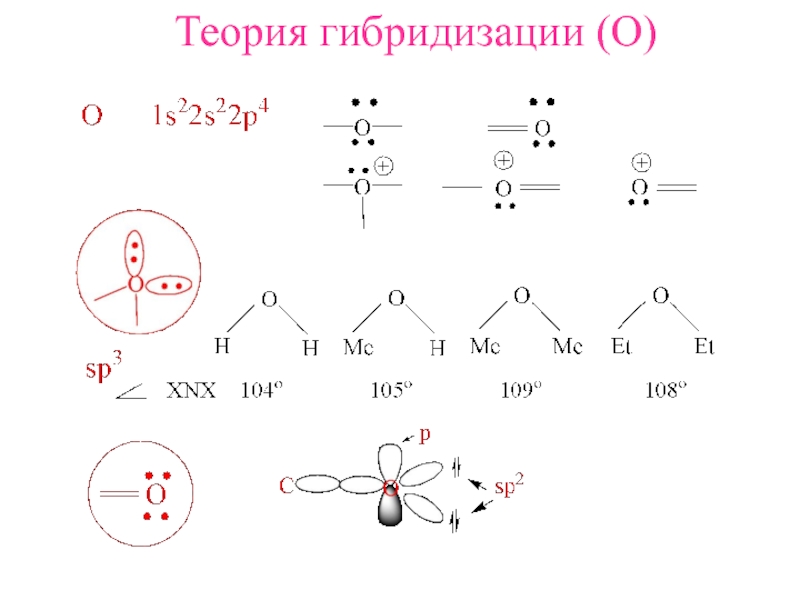Разделы презентаций
- Разное
- Английский язык
- Астрономия
- Алгебра
- Биология
- География
- Геометрия
- Детские презентации
- Информатика
- История
- Литература
- Математика
- Медицина
- Менеджмент
- Музыка
- МХК
- Немецкий язык
- ОБЖ
- Обществознание
- Окружающий мир
- Педагогика
- Русский язык
- Технология
- Физика
- Философия
- Химия
- Шаблоны, картинки для презентаций
- Экология
- Экономика
- Юриспруденция
KYIV NATIONAL LINGUISTIC UNIVERSITY
Содержание
- 1. KYIV NATIONAL LINGUISTIC UNIVERSITY
- 2. PlanME vowel system. General characteristics.Quantitative changes in
- 3. LiteratureРасторгуева Т.А. История английского языка. – М.:
- 4. OE and ME VOWEL SYSTEMSOE ea, eo,
- 5. Quantitative changes of vowels in Late OE
- 6. Shortening before other clusters All other groups
- 7. Lengthening Vowels became long + more open
- 8. Quantitative changes of vowels in Early MEAs
- 9. Слайд 9
- 10. Слайд 10
- 11. Слайд 11
- 12. Слайд 12
- 13. Слайд 13
- 14. Слайд 14
- 15. Levelling of unstressed vowelsAll unstressed vowels were
- 16. In OE 5 vowels were distinguished in
- 17. ME consonant systemAssibilation OE palatal [k’] developed
- 18. Loss of initial “h” before sonorants([h] dropping)[hr]
- 19. In NE voiced and voiceless fricatives are
- 20. THANK YOU FOR YOUR ATTENTION!
- 21. Скачать презентанцию
PlanME vowel system. General characteristics.Quantitative changes in ME. Qualitative changes in ME.Development of diphthongs.Levelling of final unstressed vowels.ME consonant system.
Слайды и текст этой презентации
Слайд 2Plan
ME vowel system. General characteristics.
Quantitative changes in ME.
Qualitative changes
in ME.
Слайд 3Literature
Расторгуева Т.А. История английского языка. – М.: Астрель, 2005. –
С. 190-200.
Ильиш Б.А. История английского языка. – Л.: Просвещение, 1972.
– С. 142-174.Иванова И.П., Чахоян Л.П. История английского языка. – М.: Высшая школа, 1976. – С.67-78.
Студенець Г.І. Історія англійської мови в таблицях. - К.: КДЛУ, 1998. – Tables 65-74
Слайд 5Quantitative changes of vowels in Late OE and Early ME
At
the end of OE / at the beginning of ME
stressed vowels underwent a number of quantitative changes, short vowels were phonemically opposed to long ones In late OE / early ME vowel length began to depend on phonetic conditionsLengthening Short vowels became long before two homorganic consonant (a sonorant + plosive)
L+D OE ald, cild, wild – ME āld, cīld, wīld
N+D OE wind, findan, blind – ME wīnd, fīndan, blīnd
M+B OE climban – ME clīmben
Слайд 6Shortening before other clusters
All other groups of 2 or
more consonants produced the reverse effect: they made the preceding
vowels shortOE sōft, cēpte, blēdde – ME soft, cepte, bledde
OE fīftig, wīsdom, wīfmann – ME fifty, wisdom
The 3rd consonant [r] prevented
the lengthening in cildru, bewildrian
!!! Long vowels resisted shortening before st east, mǽst but in some words they didn’t
dūst, fyst, rūst – dust, fist, rust
Слайд 7Lengthening Vowels became long + more open in open syllables
mainly affected open vowels [e, a, o] seldom [i, u]
OE open, wike, nama – ME open, weke, name
Long vowels remained long in open syllables, short vowels – short in open syllables
OE cū, winter – ME cow, winter
In spite of some restrictions lengthening affected many words.
Lengthening didn’t occur in polysyllabic words
(lāferce →laferce →larke) and before some suffixes (OE bodig – ME body, OE sūðerne – ME southern, OE haligdæg – ME holiday)
Слайд 8Quantitative changes of vowels in Early ME
As compared with
quantitative
vowel changes,
qualitative vowel changes in
Early ME were less
important. They affected
several monophthongs
and displayed
considerable dialectal diversity,
the changes were independent
of phonetic environment.
Слайд 15Levelling of unstressed vowels
All unstressed vowels were weakened and reduced
to a neutral vowel [ə]
(OE sunu - ME sone).
Beginning
with the 13th c. some dialects showed certain variations in spelling of unstressed vowels, which probably reflected peculiarities of pronunciation: askid, fadur.The tendency to phonetic reduction began in OE, in Early ME the pronunciation of unstressed syllables became indistinct.
Слайд 16In OE 5 vowels were distinguished in unstressed position (representing
3 opposed phonemes [e/i], [o/u], [a]), Late ME had only
2 vowels in unstressed position [ə/ i], which were never directly contrasted – phonemic contrasts in unstressed vowels had been lost.The loss of [ə] started in the North, spread to the Midlands, reached the South areas by the 15th c. When the ending survived in spelling, it was understood as a means of showing the length of the vowel in the preceding syllable, it was added to the words that never had it before (OE rād, stān, hūs – ME rode, stone, house)
Слайд 17ME consonant system
Assibilation OE palatal [k’] developed into the affricate
[t∫]
[k’] → [t∫] OE cild, ælc → ME child,
each[sk’] → [∫] OE scip, scinan → ME ship, shinen
[g’] → [dʒ] OE brycʒ, secʒan, lecʒan → ME bridge, seggen, leggen – due to the analogy with the past forms seide, saide (OE sæʒde), leide, laide (OE læʒde)
In Northern dialects – kirk (church), birk (birch)
Слайд 18Loss of initial “h” before sonorants
([h] dropping)
[hr] → [r] OE
hrinʒ → ME ring
[hl] → [l] OE hlūd → ME
loud[hn] → [n] OE hnut → ME nut
Loss of endings in weak final position
OE gamen → ME game
OE sittan → ME sitten → sit
Shortening of long consonants full [ful]
Слайд 19In NE voiced and voiceless fricatives are used in all
positions
Foot-initial ferry-very, fan-van
Foot-middle selfish- selvedge
Foot-final
calf – carveVeal, victory, zodiac
OE lufu –ME love

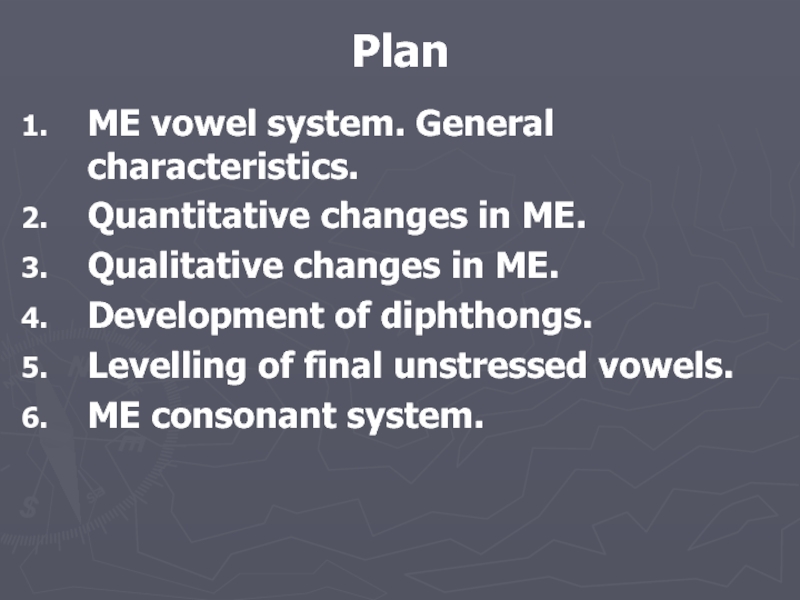

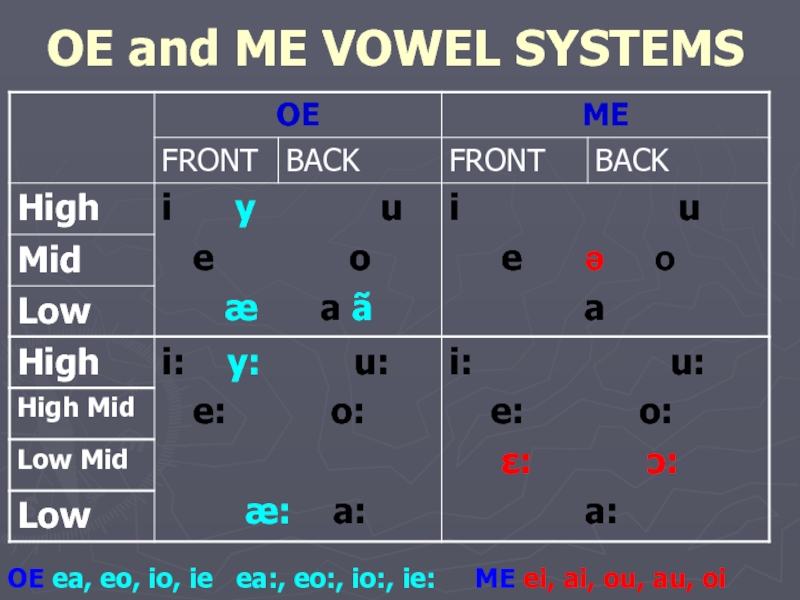
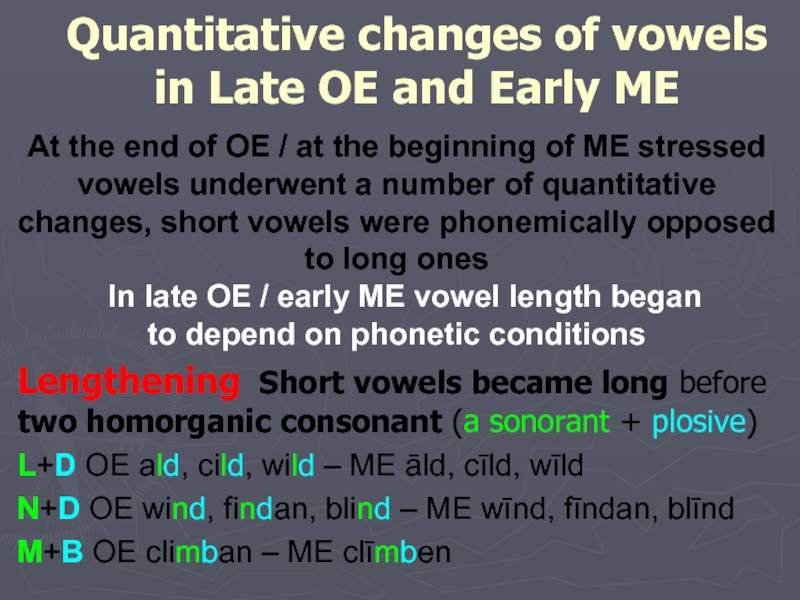
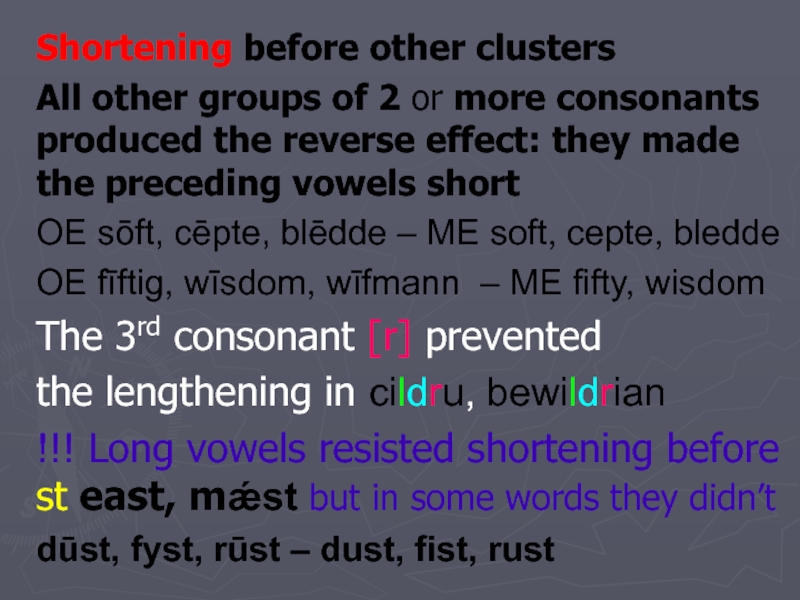
![KYIV NATIONAL LINGUISTIC UNIVERSITY Lengthening Vowels became long + more open in open syllables mainly Lengthening Vowels became long + more open in open syllables mainly affected open vowels [e, a, o]](/img/thumbs/37eb6e62edd024205fdc3ff152a5ef0c-800x.jpg)

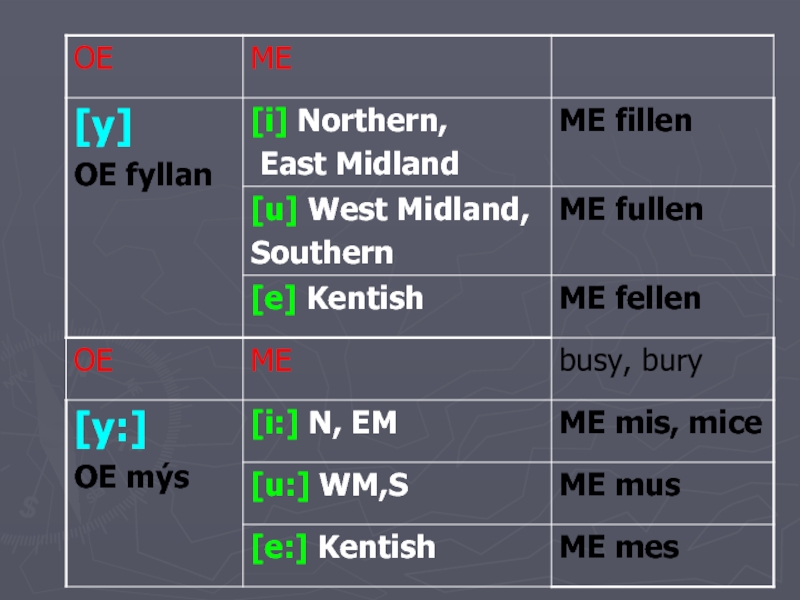

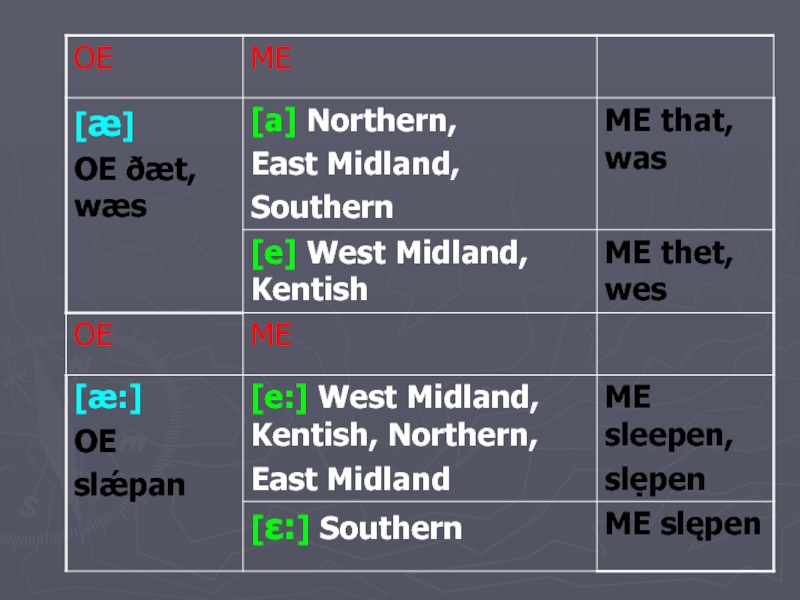
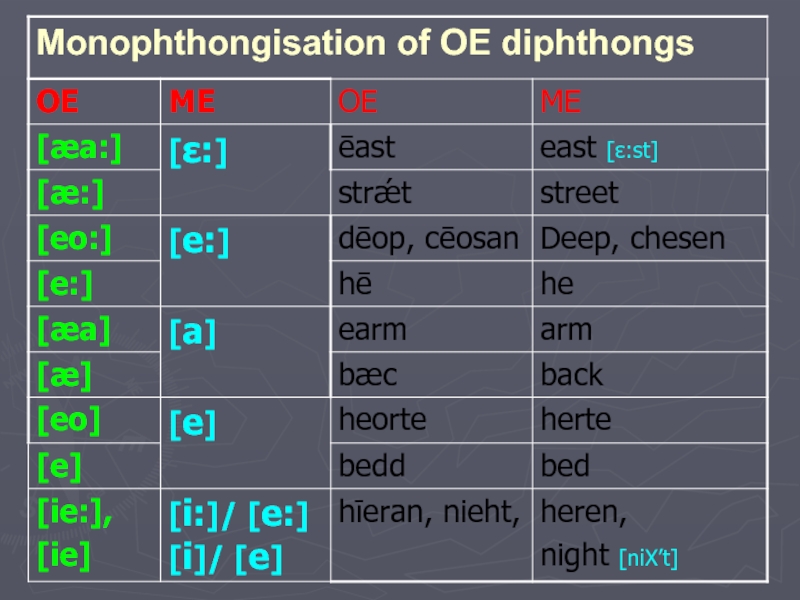
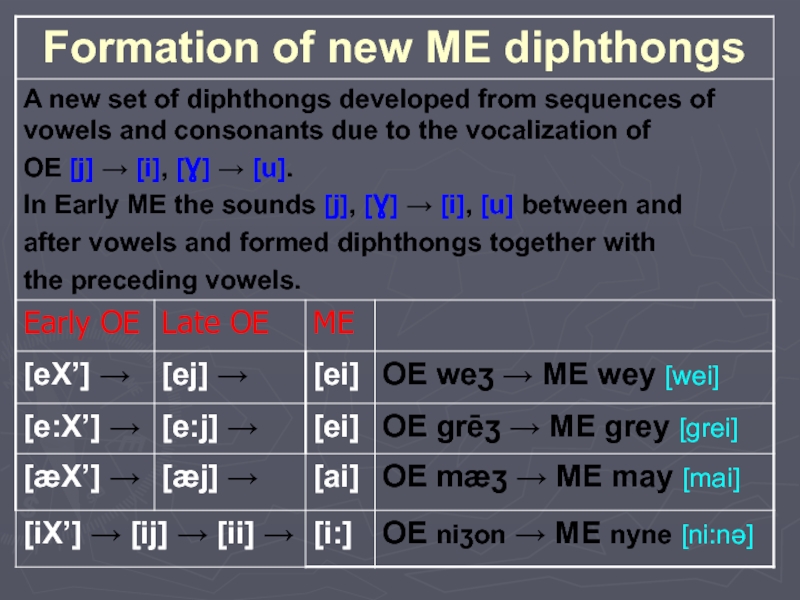
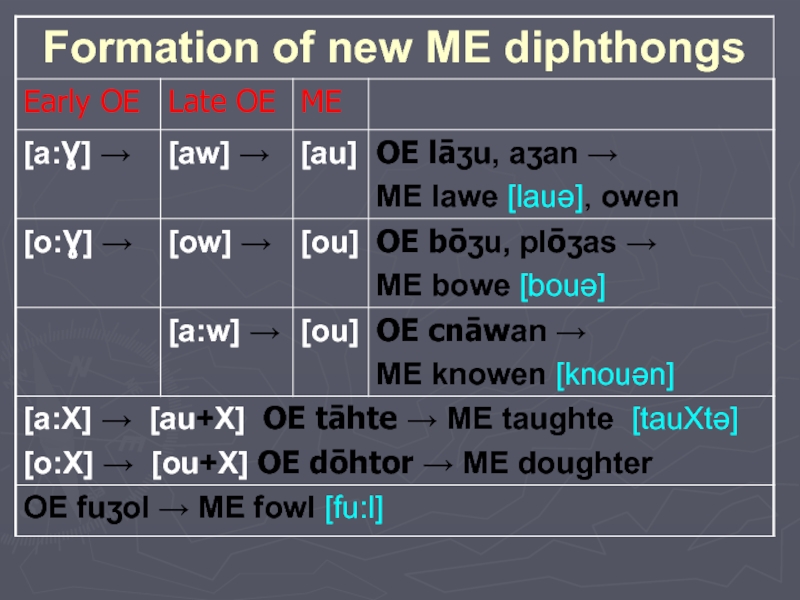
![KYIV NATIONAL LINGUISTIC UNIVERSITY Levelling of unstressed vowelsAll unstressed vowels were weakened and reduced to Levelling of unstressed vowelsAll unstressed vowels were weakened and reduced to a neutral vowel [ə] (OE sunu](/img/thumbs/e1c8f194d95e15bd264adf599a3cb9db-800x.jpg)
![KYIV NATIONAL LINGUISTIC UNIVERSITY In OE 5 vowels were distinguished in unstressed position (representing 3 In OE 5 vowels were distinguished in unstressed position (representing 3 opposed phonemes [e/i], [o/u], [a]), Late](/img/thumbs/8abaca8bd381519a2a8dd149d96d0e63-800x.jpg)
![KYIV NATIONAL LINGUISTIC UNIVERSITY ME consonant systemAssibilation OE palatal [k’] developed into the affricate [t∫] ME consonant systemAssibilation OE palatal [k’] developed into the affricate [t∫] [k’] → [t∫] OE cild, ælc](/img/tmb/3/298937/cfb53b3465eeb372aa8bd7e9e4d115eb-800x.jpg)
![KYIV NATIONAL LINGUISTIC UNIVERSITY Loss of initial “h” before sonorants([h] dropping)[hr] → [r] OE hrinʒ Loss of initial “h” before sonorants([h] dropping)[hr] → [r] OE hrinʒ → ME ring[hl] → [l] OE](/img/thumbs/4d6a3d1a9ec8a2f81797d3fd0563c8b0-800x.jpg)
